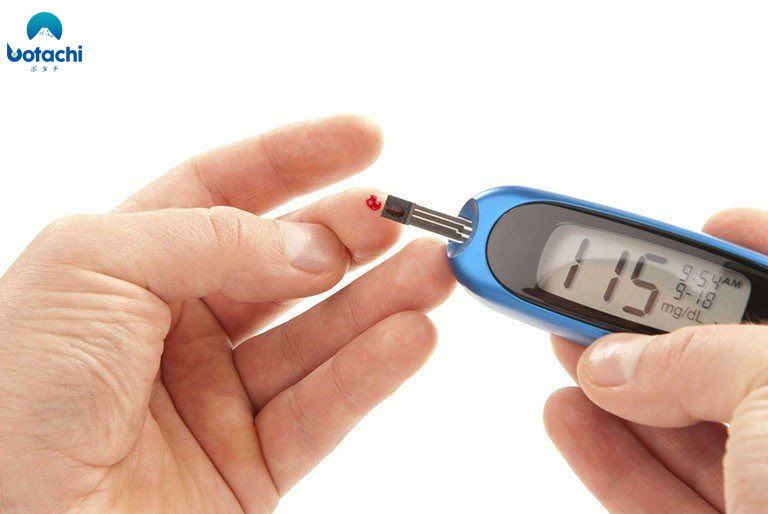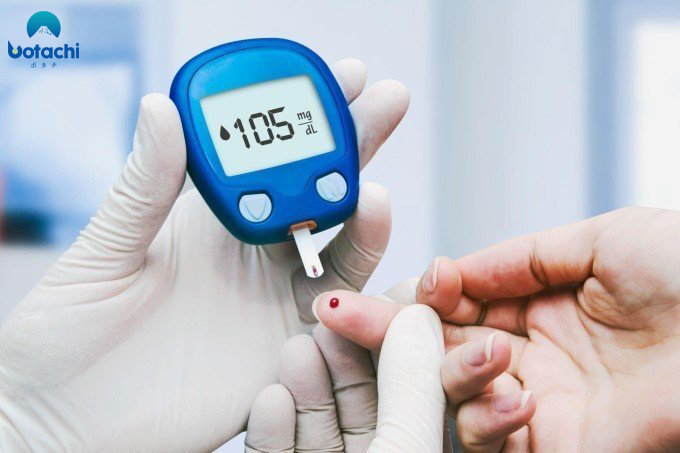What is diabetes 3 and how is it treated?
What is diabetes 3 and how is it treated? When it comes to diabetes, most people only know two types: type 1 and type 2 diabetes. Of these, type 2 diabetes accounts for the majority. However, recently scientists have confirmed type 3 diabetes….
What is diabetes 3 and how is it treated?
When it comes to diabetes, most people only know two types: type 1 and type 2 diabetes. Of these, type 2 diabetes accounts for the majority. However, recently scientists have confirmed the existence of type 3 diabetes. Although little known, it is extremely dangerous!!!

How many types of diabetes are there?
Diabetes is a disease of glucose metabolism in the blood, causing uncontrolled blood sugar levels and causing many health consequences. The four recognized types of diabetes include:
- Type 1 diabetes
Type 1 diabetes occurs when the immune system has problems, insulin-producing cells are destroyed and cannot undertake the task of metabolizing glucose in the blood. Therefore, blood sugar levels increase uncontrollably. Type 1 diabetes is a fairly rare genetic disease, accounting for only about 10% of diabetes cases.
- Type 2 diabetes
This is the most common form. There are 2 reasons. First is due to age. Over time, the pancreas's function declines and it does not produce enough insulin, causing blood sugar levels to not be metabolized and accumulate. Second, due to improper diet and exercise. Eating too much fat, starch and lack of exercise are the leading causes of diabetes
- Gestational diabetes
Occurs in pregnant women and is a temporary condition related to insulin resistance, so it is not classified as a separate form of diabetes.
- Type 3 diabetes
Previously, many people believed that the hormone insulin - glucose metabolism - was only produced in the pancreas. However, according to Dr. Suzanne M. de la Monte - Neurologist at Rhode Island Hospital, Insulin is also produced in the brain.

Type 1 and 2 diabetes occur mainly due to damage to the pancreas but do not affect the brain. Type 3 diabetes, also known as cerebral diabetes, occurs due to damage to the pancreas and chronic inflammation. The area of the brain that is damaged is the one that regulates insulin production. So in reality, type 3 diabetes only occurs in patients with type 1 or type 2 diabetes, the disease is more severe and more difficult to treat.
Scientists have proven that the hormone insulin produced by the brain is involved in the formation of new memories. Therefore, type 3 diabetes patients often have memory problems, including Alzheimer's neurodegenerative disease.
Symptoms of diabetes 3
Patients with diabetes 3 have typical symptoms that can be distinguished from type 1 and type 2 diabetes such as:
- High blood sugar.
- Lost weight.
- Memory loss, confusion.
- Inability to form new memories.
It can be seen that the symptoms of diabetes 3 are quite similar to the symptoms of Alzheimer's disease in addition to the typical symptoms of diabetes. Therefore, in diagnosing the disease, it is necessary to use MRI scanning to distinguish diabetes 3 and Alzheimer's disease.
Because it is uncommon, the number of cases of type 2 diabetes that are properly diagnosed and treated is only about 3% (data from the Journal of Diabetes Care). Meanwhile, Dr. Andrew McGovern from the University of Surrey said: About 5 - 10% of diabetes cases in the Americas have type 3 diabetes but are not accurately diagnosed. So the world has millions of people with this disease.
How to treat diabetes 3
- Treatment medicine
This type of diabetes is not only difficult to detect, but also not easy to treat because the disease not only reduces the production and functioning of the pancreas but also prevents the production of other important enzymes and hormones.
Dr. McGovern says people with type 3 diabetes are twice as likely to control low blood sugar as people with type 2 diabetes. The amount of insulin needed is also 5-10 times greater depending on level. extent of damage. pancreas.
Because there have not been many studies evaluating this type of diabetes, treatment is still limited. To treat and prevent complications, type 3 diabetes patients need to use medication to protect brain cells, helping to slow down the process of memory loss. In addition, doctors may consider giving patients antilipidemia drugs.
- Healthy diet
Besides using medication, patients need to pay attention to a nutritious diet, limit sugar and starch, and increase vegetable intake. Patients can both control blood sugar levels well and prevent overweight and other dangerous complications of diabetes. Many people believe that fruit juice is very good for diabetics, but it needs to be limited because it contains very high amounts of sugar.

- Practice
Regular exercise is also recommended for diabetics in general and type 3 diabetes in particular. You should spend at least 30 minutes exercising every day by walking, doing yoga, jogging, cycling or swimming.
- Keep a comfortable spirit
Diabetes 3 is related to Alzheimer's syndrome - one of the 6 leading causes of death. Advice for type 3 patients is to always stay optimistic, feel comfortable and treat according to the prescribed dosage. Relaxing by listening to music or reading books will help you train your brain to remember better. Stress, anxiety, and fatigue can easily cause your blood sugar to spike.
Conclude
Thus, medicine has confirmed type 3 diabetes, but further research is needed on this issue. Although there is no definitive treatment for this disease, if properly diagnosed and treated, the patient's condition will improve significantly.
Above is the information about type 3 diabetes that BOTACHI Diabetes Support Food experts have shared. Hopefully it will help patients master the knowledge to treat the disease effectively. If you need advice on nutrition and milk for people with type 3 diabetes, please contact BOTACHI immediately to receive advice from experts!
